Profile: Ebola nurse Pauline Cafferkey
- Published
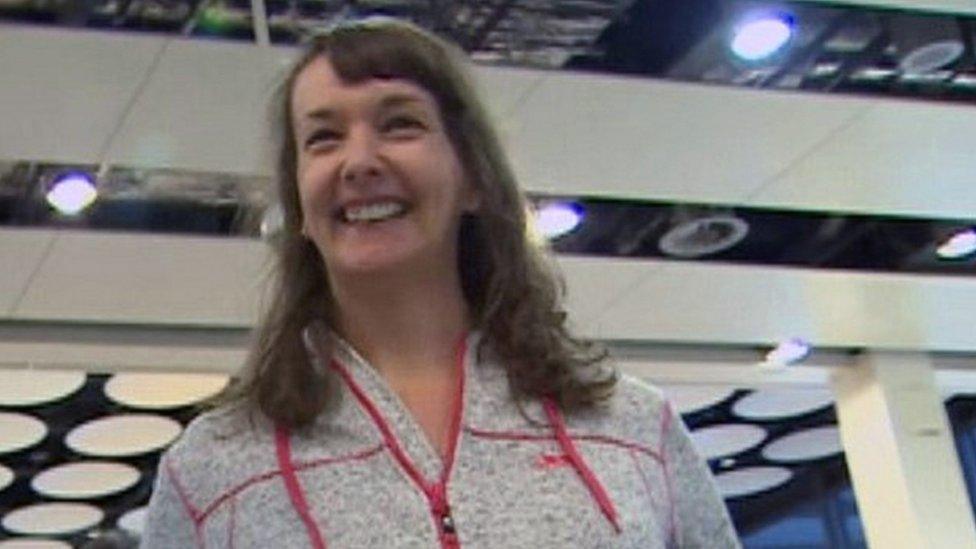
Pauline Cafferkey said she did not think twice about volunteering to go to Sierra Leone
Scottish nurse Pauline Cafferkey, who contracted Ebola while working in Sierra Leone two years ago, is being investigated over claims she gave dishonest answers while being screened for the deadly disease when she returned to Heathrow Airport.
Ms Cafferkey, 39, spent several weeks in Royal Free Hospital in London in January 2015 after becoming the first person to be diagnosed with Ebola in the UK.
She was later discharged after apparently making a full recovery - but later it was discovered that the virus is still present in her body.
So what do we know about Ms Cafferkey?

Pauline Cafferkey is said to have been inspired to join the NHS after watching the horror of the Ethiopian famine on television in the 1980s.
So when an appeal was made for NHS staff who were willing to travel to west Africa to help tackle the Ebola outbreak, she felt compelled to volunteer.
Ms Cafferkey - a nurse with 16 years of experience who was working at the Blantyre health centre in South Lanarkshire - was well aware of the risks she would face.
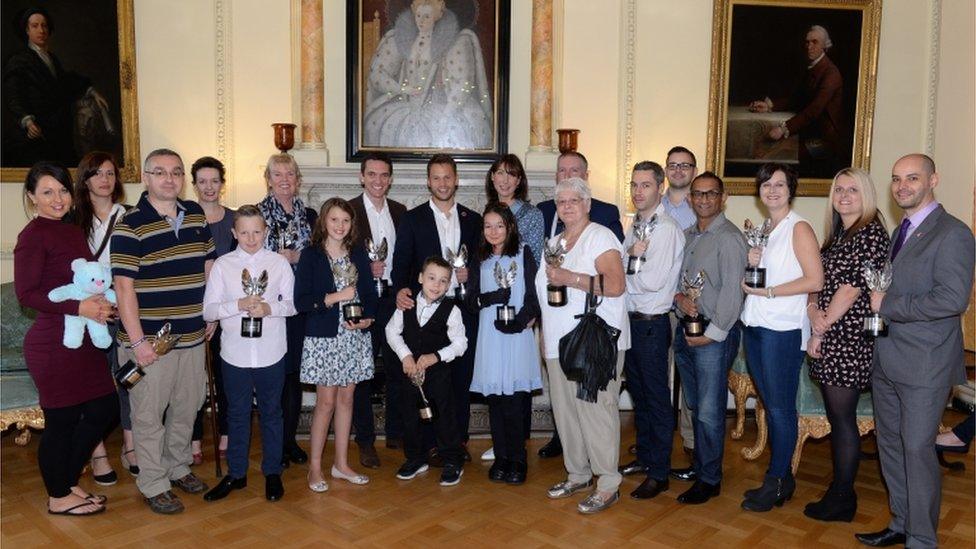
Ms Cafferkey, fourth from left, met Samantha Cameron at Downing Street after receiving a Pride of Britain award
But as she prepared to depart for Sierra Leone as part of a 30-strong NHS team in November 2014, she told BBC Scotland that she could not think of any reason not to go.
She added: "I have experience in the past. I've done aid work, I've worked in Africa, so I didn't really think about it actually, I just did it."
The NHS team - which included GPs, nurses, psychiatrists and emergency medicine consultants - had been specially selected from the 1,000 staff who volunteered to take part in the mercy mission to west Africa, where more than 7,000 people have been killed in the Ebola outbreak.
They had undergone nine days of intensive training with the Ministry of Defence before being allowed to start work with patients at treatment centres across Sierra Leone.
Colleagues who worked with her have spoken of Ms Cafferkey's dedication and enthusiasm for her role at the Ebola Treatment Centre in Kerry Town.
And in extracts from her diary published by the Scotsman newspaper, external, she described how the work she was doing had quickly come to feel like a "normal part of life".
She wrote: "My nice community nursing job in Blantyre is far removed from this but at the moment this seems a lot more real. The dreams that I do remember always seem to have an Ebola theme, it seems to be all consuming."
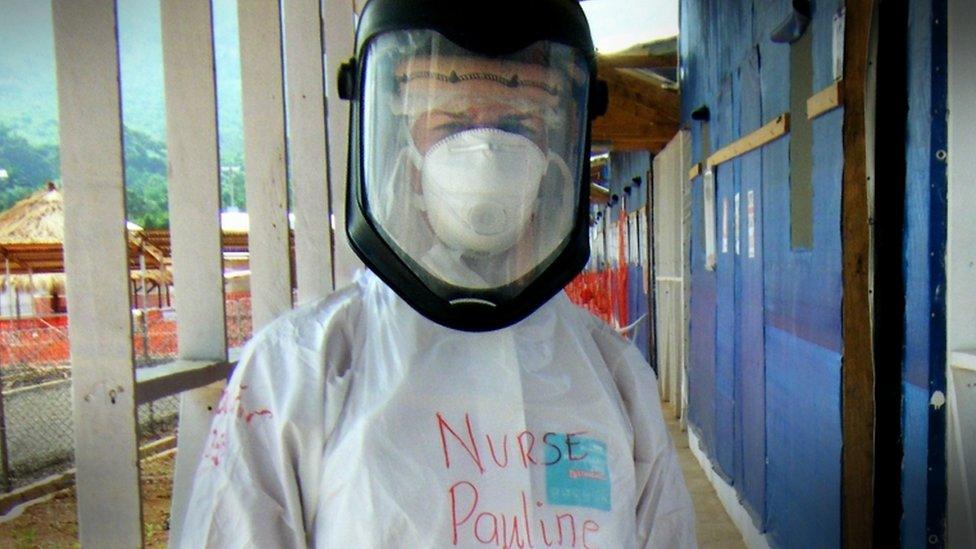
Ms Cafferkey kept a diary of her time in Sierra Leone
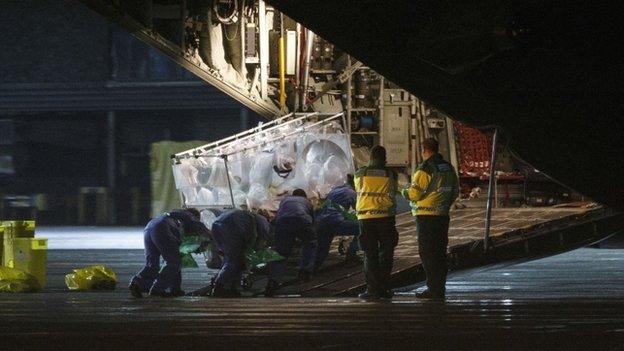
A specialist medical team flew her from Glasgow to London on an RAF Hercules aircraft after she became ill
During the third week of her diary, she described "an awful shift" during which she had to tell a young boy, whose father had died from Ebola, that the virus had also killed his mother and sister.
"His mother had seen her daughter die in the bed across from her that morning and she died a few hours later," she wrote.
"The sad thing is that this is a regular occurrence and we see and hear of whole families being wiped out by this awful disease."
Ms Cafferkey returned to the UK on 28 December 2014 for a break as part of a rotation system. She was screened after arriving at Heathrow Airport, but no concerns were raised about her health.
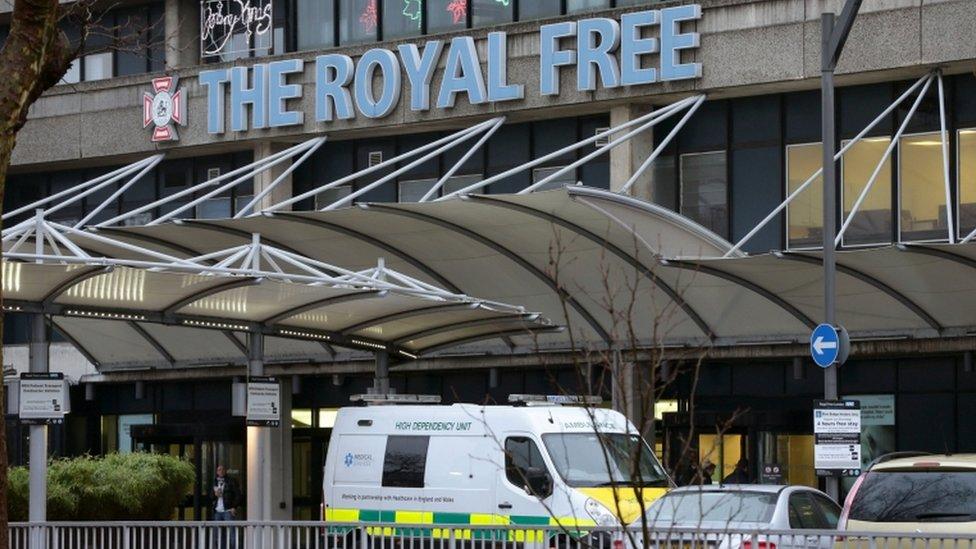
Ms Cafferkey later returned to the Royal Free Hospital in London after suffering complications
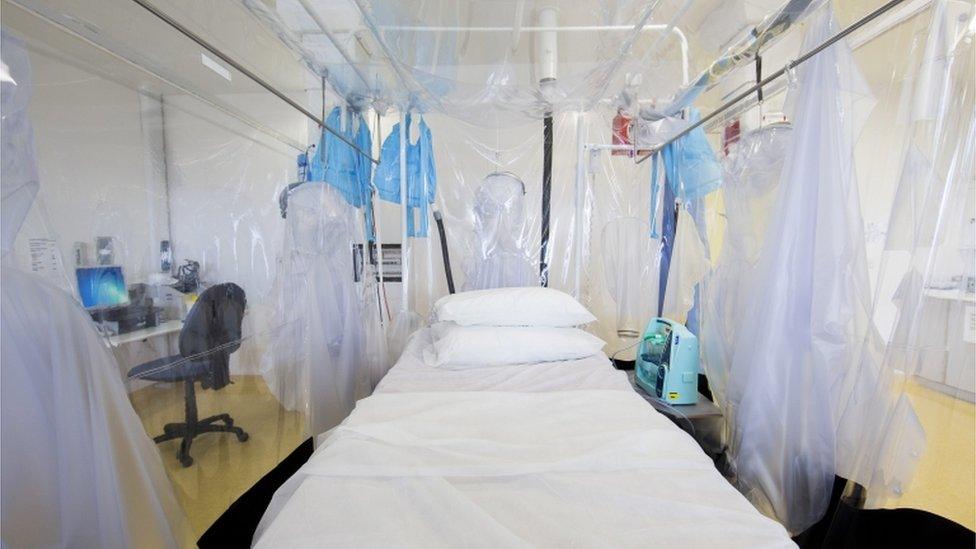
The hospital is home to a specialist unit that deals with highly infectious diseases
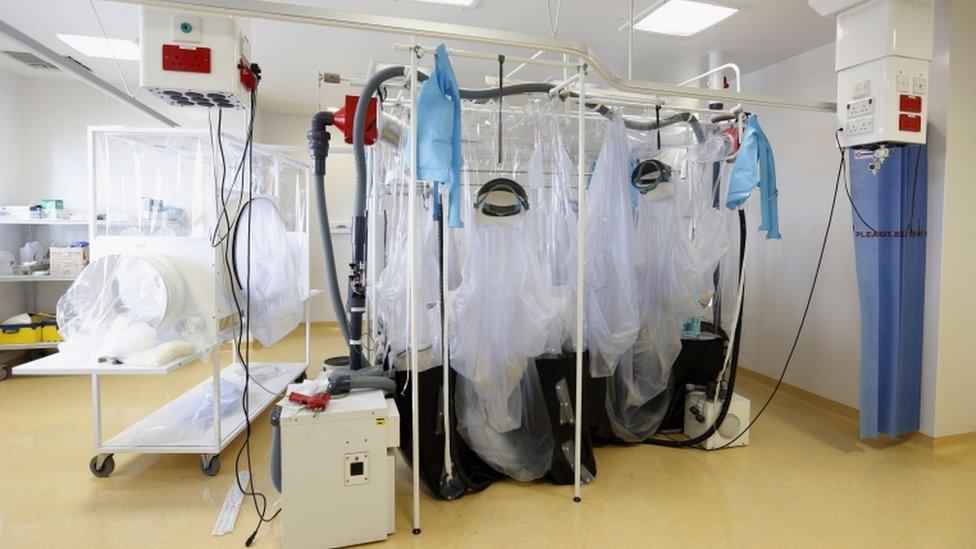
While waiting for a connecting flight to Glasgow, she complained about her temperature and had it checked a further six times, but was given the all clear.
She arrived at Glasgow Airport at about 23:00 and took a taxi to her home in a block of flats in Cambuslang, on the south eastern outskirts of Glasgow.
But a short time later she raised the alarm after feeling unwell, with neighbours waking to find a small fleet of ambulances and police cars sitting in the block's communal car park.
She was taken to the specialist Brownlee Unit for Infectious Diseases on the Gartnavel Hospital campus in Glasgow, where she was put in isolation, before being flown on an RAF Hercules aircraft to the Royal Free Hospital in north London on 30 December.
Medical staff who treated her there initially said she was "doing as well as can be expected".
But on 3 January 2015, the hospital released a further statement saying her condition had "gradually deteriorated" over the previous two days, and her condition was "critical."
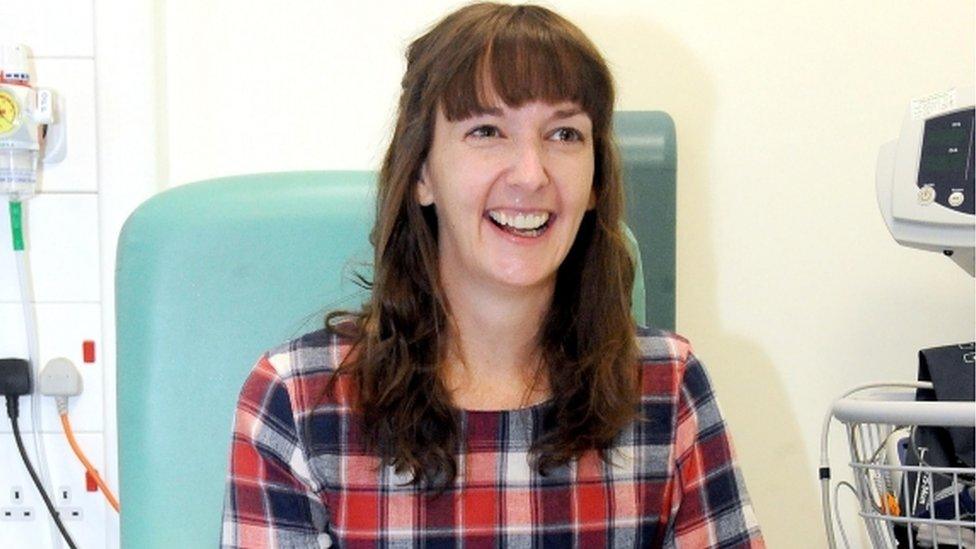
Experts said the fact that Ms Cafferkey had already beaten Ebola once will help her recovery from the complications she later suffered
Her condition was said to have stabilised by 5 January, and she was well enough to be discharged from hospital later that month, with doctors saying she had completely recovered and was not infectious in any way.
But it was later discovered that the virus was still present in her body, and she was readmitted to the same hospital in October 2015.
She again recovered, before being treated at the Royal Free for a third time in February of this year due to a further complication related to her initial Ebola infection.
Ms Cafferkey, whose partner was said to have been among those tested for Ebola after coming into contact with her, had returned to work at the Blantyre health centre.
In an interview with the BBC before her relapse, she described how Ebola was still affecting her health, but said she was hopeful of getting better.
She said: "I do get joint pains - have done for two or three months now. To start with I had thyroid problems and then my hair fell out so it's taken me a good few months to recover from it.
"And that's the thing you just don't know long-term-wise either. Hopefully this is it - that's the end of it."
Ms Cafferkey won an award at the the Pride of Britain Awards in central London on 28 September 2015. The award was introduced by Prime Minister David Cameron and presented to her by comedian Lenny Henry.
She met the Prime Minister's wife Samantha Cameron the following day at Downing Street, alongside other winners.
The Daily Mirror awards recognise courage and achievement against the odds, with nominees voted by members of the public.